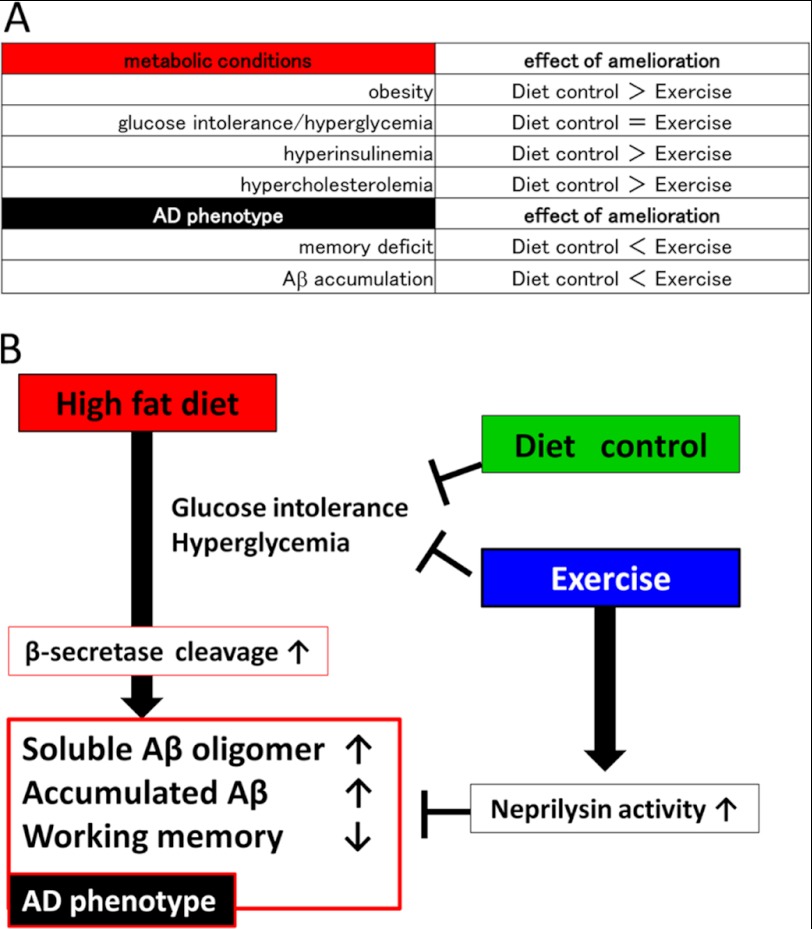FIGURE 7.
Schematic presentation of our study. A, the classification of the results in the present study. The items we analyzed in this study are included in the left column, whereas the effect of amelioration is showed in the right column. As shown in this table, Diet control > Exercise indicated that diet control ameliorated better than exercise. Diet control significantly improved HFD-induced metabolic conditions, including obesity, hyperinsulinemia, and hypercholesterolemia, better than exercise. However, exercise decreased soluble Aβ oligomers as well as deposited Aβ and ameliorated memory impairment better than diet control. B, schematic presentation of our hypothesis: how diet control or exercise ameliorated HFD-induced memory deficits and Aβ accumulation. HFD leads to glucose intolerance and hyperglycemia, which may lead to the up-regulation of β-secretase activity. This up-regulation increases soluble Aβ oligomers as well as deposited Aβ levels followed by memory deficit (7). On the other hand, both diet control and exercise ameliorate HFD-induced glucose intolerance and hyperglycemia, thereby decreasing soluble Aβ oligomer and fibrillar Aβ levels by inhibiting Aβ production. However, exercise specifically strengthens the enzymatic activity of neprilysin, which degrades Aβ in the brain.

